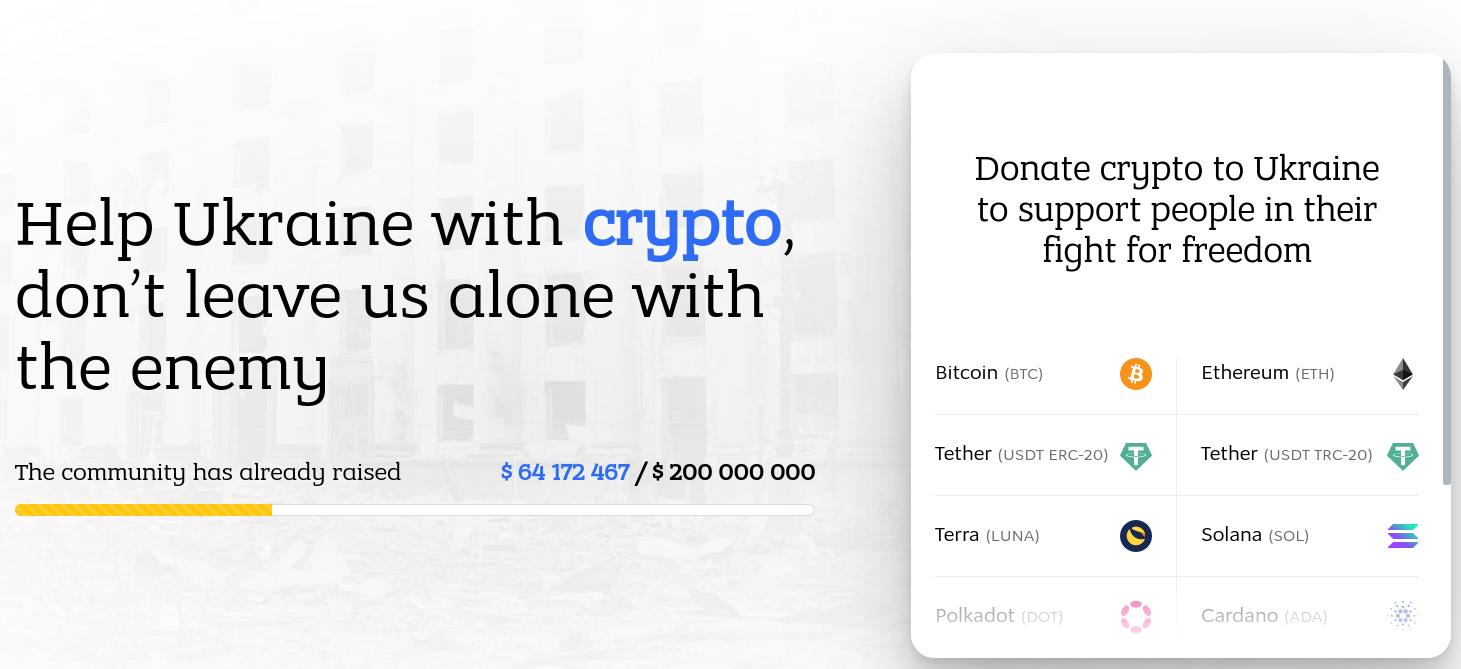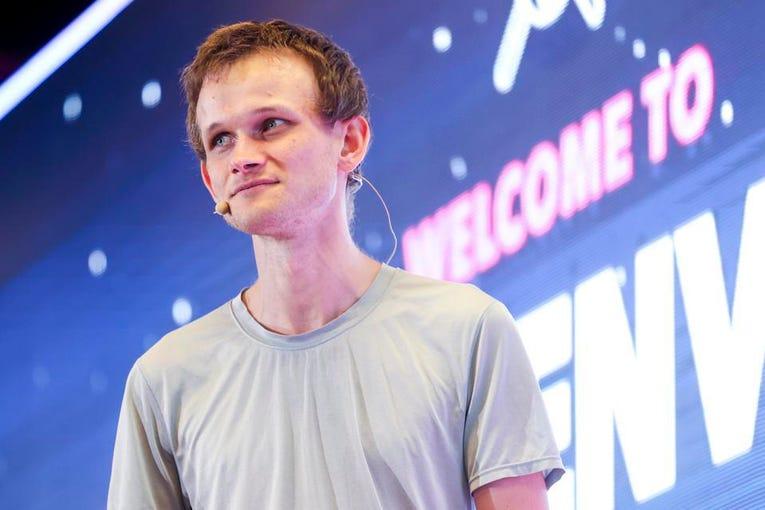Vitalik's April Fool's Day Article: Defending Bitcoin Maximalists
Author: Vitalik
Compiled by: Captain Hiro, Babit
What we've been hearing all these years is------blockchain is the future, Bitcoin is not. The future of the world will not consist of just one dominant cryptocurrency, nor even a few, but rather many cryptocurrencies------and the winning cryptocurrency will have strong leadership under a central control, quickly adapting to the scale demands of users; people will also say that Bitcoin is a "boomer coin," while Ethereum will soon catch up, being a newer, more vibrant asset that will attract a new wave of mainstream users who are indifferent to strange libertarian ideologies or the "sacredness of private property," kept at bay by toxic and anti-government attitudes, who just want blockchain DeFi and games to be fast and efficient.
But what if this narrative is all wrong, and the ideas, habits, and practices of Bitcoin maximalists are actually very close to being correct? What if Bitcoin is much more than an outdated collectible stone tied to network effects? What if Bitcoin maximalists truly understand that they are operating in a very hostile and uncertain world, where there are things they need to fight for, and their actions, personalities, and philosophies of protocol design deeply reflect this fact? What if we live in a world composed of honest cryptocurrencies (of which there are very few) and fraudulent cryptocurrencies (of which there are many), and to prevent the former from turning into the latter, a certain degree of intolerance is actually necessary? This is the argument I aim to present in this article.
We live in a dangerous world, and protecting freedom is a serious matter
I hope this is clearer than it was six weeks ago, when many still seriously believed that Vladimir Putin was a misunderstood good guy who just wanted to protect Russia and save Western civilization from the "gay (NATO)" disaster. But this viewpoint is still worth repeating. We live in a dangerous world filled with many bad actors who do not heed sympathy or reason.
At the core of blockchain is a security technology------a technology fundamentally designed to protect people and help them survive in such an unfriendly world. It is like the Phial of Galadriel, "in this small bottle shines the light of Eärendil's star, from my fountain. When the night falls, it will shine brighter. When all other lights go out, may it be a lamp for you in dark places." It is not a low-cost lamp, nor a fluorescent hippie energy-saving bulb, or a high-performance light. It is a lamp that sacrifices in all these aspects to optimize one thing, and only one thing: when you face the toughest challenges of your life, with a damn 20-foot spider staring at your face, it is a lamp that lights the path ahead of you.
Blockchain is used every day by the unbanked and underbanked, activists, sex workers, refugees, and many other groups, who are either uninterested in profit-seeking centralized financial institutions or have enemies who do not want to serve them. It serves as a primary lifeline for many, used for payments and storing their savings.
Because of this, public chains sacrifice a lot for security:
- Blockchain requires every transaction to be independently verified thousands of times before being accepted.
- Unlike centralized systems that confirm transactions in hundreds of milliseconds, blockchain requires users to wait 10 seconds to 10 minutes for confirmation.
- Blockchain requires users to take full responsibility for authenticating themselves: if you lose your private key, you lose your cryptocurrency.
- Blockchain sacrifices privacy, requiring people to use crazier and more expensive technologies to regain privacy.
What are all these sacrifices for? To create a system that can survive in an unfriendly world and truly achieve "when all other lights go out, may it be a lamp for you in dark places."
To excel at this task, blockchain needs two key factors. (i) A strong, defensible tech stack and (ii) a strong, defensible culture. The key attributes of a strong and defensible tech stack are a focus on simplicity and deep mathematical purity: a 1 MB block size, a limit of 21 million coins, and a simple Satoshi consensus proof-of-work mechanism that even a high school student can understand. The rationality of protocol design must be easy to prove decades or even centuries later; the technology and parameter choices must be a work of art.
The second element is an uncompromising, steadfast minimalist culture. This must be a culture that can tenaciously defend itself against corporate and governmental actors attempting to co-opt the ecosystem from the outside, as well as bad actors within the cryptocurrency space trying to exploit it for personal gain, of which there are many.
Now, what is the culture of Bitcoin and Ethereum like? Well, let's ask Kevin Pham:
I don't think there is any difference between the Bitcoin and Ethereum communities.
Don't believe this tweet is representative? Well, let's ask Kevin Pham again:
The Bitcoin and Ethereum communities are completely the same, part two.
Now you might say, this is just Ethereum people joking, and in the end, they understand what they are doing and what they are dealing with. But do they? Let's look at who Ethereum founder Vitalik Buterin is hanging out with.

Vitalik mingling with tech elite CEOs in Beijing, China

Vitalik meeting Vladimir Putin in Russia
 Vitalik meeting Jerusalem Mayor Nir Barkat
Vitalik meeting Jerusalem Mayor Nir Barkat
And this is just a small part of it. The direct question anyone seeing this should ask is: what is the point of meeting all these people publicly? Some of these individuals are very respectable entrepreneurs and politicians, but others are actively involved in serious human rights violations, which Vitalik certainly does not support. Does Vitalik not realize how geopolitically murderous some of these people are?
Now, perhaps he is just an idealist who believes that talking to people helps achieve world peace, a follower of Frederick Douglass's maxim of "unite with anyone to do right, and with no one to do wrong." But there is also a simpler hypothesis: Vitalik is a smiley-faced globetrotting status seeker who enjoys meeting important people and feels respected. And it’s not just Vitalik; companies like Consensys are also completely happy to collaborate with Saudi Arabia as the entire ecosystem continually seeks validation from mainstream figures.
Now ask yourself a question: when the time comes, when something important actually happens on the blockchain------something that actually offends powerful people------which ecosystem will be more willing to humble itself and refuse to censor it, no matter how much pressure is applied? Is it the ecosystem of global nomads who genuinely care about becoming friends with everyone, or is it the ecosystem of people who take pictures of themselves with their AR15s and axes as a side gig?
Money is not "just the first application," it is by far the most successful one
Many who hold the view of "blockchain, not Bitcoin" believe that cryptocurrencies are the first application of blockchain, but this is a very boring application, and the true potential of blockchain lies in bigger and more exciting things. Let's look at the list of applications in the Ethereum white paper:
- Token issuance
- Financial derivatives
- Stablecoins
- Identity and reputation systems
- Decentralized file storage
- Decentralized autonomous organizations (DAOs)
- Peer-to-peer gambling
- Prediction markets
Many of these categories have applications that have already been launched and at least some users. What cryptocurrency people truly value is empowering "Global South" bank debtors. Among these applications, which ones actually have a large number of users in the Global South?
It turns out that so far, the most successful application of blockchain is storing wealth and payments. 3% of Argentinians own cryptocurrency, 6% of Nigerians and 12% of Ukrainians also own cryptocurrency. So far, the largest instance of governments utilizing blockchain to accomplish something useful is cryptocurrency donations to the Ukrainian government, and if we count donations to non-governmental Ukraine-related work, Ukraine has already raised over $100 million.


What other applications today come close to this level of actual, real adoption? Perhaps the closest is ENS. DAOs are real and growing, but today there are too many DAOs attracting wealthy individuals from developed countries whose main interest is fun and using cartoon characters to satisfy their first-world self-expression needs, rather than building schools and hospitals and addressing other real-world problems.
Thus, we can clearly see two factions: the "blockchain" faction, privileged individuals from wealthy countries who enjoy virtue signaling about "beyond money and capitalism" and cannot help but feel excited about "decentralized governance experiments" as a hobby; and the "Bitcoin" faction, a highly diverse group composed of both the rich and poor from many countries around the world, including the Global South, who are actually using the capitalistic tool of sovereign money to provide real value to humanity today.
Focusing on being money will make money better
A common misunderstanding about why Bitcoin does not support "richly stateful" smart contracts is this: Bitcoin really values simplicity, especially low technical complexity, to reduce the chances of error. Therefore, it does not want to add more complex features and opcodes that are necessary to support the more complex smart contracts found in Ethereum.
Of course, this misunderstanding is incorrect. In fact, there are many ways to add rich statefulness to Bitcoin; searching for the term "covenants" in Bitcoin chat archives reveals many proposals being discussed, many of which are surprisingly simple. The reason these covenants have not been added is not because Bitcoin developers see no value in rich statefulness and find even a little more protocol complexity intolerable. Rather, it is because Bitcoin developers are concerned about the systemic complexity that rich state may bring to the ecosystem, as well as the risks!

Recent Bitcoin research papers describe some methods of introducing covenants to add some degree of rich statefulness to Bitcoin
Ethereum's struggle with miner extractable value (MEV) is a good example of this issue in practice. In Ethereum, developers can easily build applications that allow the next person interacting with certain contracts to receive substantial rewards, leading traders and miners to compete for it, significantly increasing the risk of network centralization and requiring complex solutions. In Bitcoin, building such applications with systemic risk is difficult, largely because Bitcoin lacks rich statefulness and focuses on simple (no MEV) use cases, namely just being money.
Systemic risks can also occur in non-technical ways. Bitcoin being just money means it requires relatively fewer developers, which helps reduce the risk of developers starting to demand free money printing to build new protocol features. Bitcoin as money reduces the pressure on core developers to continually add features to "keep up with competition" and "meet developer demands."
In many ways, the systemic effects are real; a currency cannot "facilitate" an ecosystem of highly complex and risky decentralized applications without being bitten by that complexity in some way. Bitcoin is a safe choice. If Ethereum continues its layer-two-centric approach, then ETH as money may distance itself from the application ecosystem it enables, thus gaining a degree of protection. On the other hand, so-called high-performance layer-one platforms have no chance.
In general, the earliest projects in an industry are the most "real"
Many industries and fields follow a similar pattern. First, some new exciting technology is either invented or significantly improved to the point where it can be genuinely used in certain aspects. At the beginning, the technology is still clunky, its risks too great for almost anyone to touch it as an investment, and there is no "social proof" indicating that people can leverage it for success. Therefore, the first participants will be idealists, tech enthusiasts, and others who are genuinely excited about the technology and its potential to improve society.
However, once the technology proves itself, ordinary people will follow------in internet culture, this event is often referred to as Eternal September (Eternal September). These people are not just ordinary good folks; they want to feel part of something exciting, along with suited business people who begin to search the ecosystem like hungry wolves for ways to make money------and the army of venture capitalists is equally eager to support them to make their own money. In extreme cases, outright scammers also come in, creating blockchains with no redeeming social or technical value, essentially scams. But the reality is that the line between "altruistic idealists" and "scammers" is actually coexistent. The longer an ecosystem lasts, the harder it becomes for any new projects on the altruistic side to get off the ground.
The philosophical and idealistic values of the blockchain industry are slowly being replaced by short-term profit-seeking values, with a noisy representation being the increasingly large pre-allocation: a developer of a cryptocurrency giving themselves a distribution fund.

Image source: Messari
Which blockchain communities deeply value self-sovereignty, privacy, and decentralization, and make significant sacrifices to achieve it? And which blockchain communities just want to inflate their market cap and make money for founders and investors? The chart above should make this clear.
Intolerance is a good thing
I have made it clear above why Bitcoin's status as the first cryptocurrency gives it a unique advantage that makes it extremely difficult to replicate any cryptocurrency created in the past five years. But now we need to talk about the biggest counterargument to the culture of Bitcoin faith: why is it so toxic?
The case for why faith in Bitcoin is toxic stems from Conquest's Second Law. In Robert Conquest's original formulation, the law states, "Any organization that is not explicitly and constitutionally right-wing will sooner or later become left-wing." But in reality, this is just a special case of a more general pattern, and in the modern ruthlessly homogenized and compliant social media age, this pattern is more meaningful than ever.
If you want to maintain an identity that is different from the mainstream, you need a truly strong culture that actively resists and counters assimilation into the mainstream whenever it tries to assert its hegemony.
As I mentioned above, blockchain is fundamentally a very clear countercultural movement that is trying to create and maintain something different from the mainstream. As the world splits into major power blocs actively suppressing social and economic interactions between them, blockchain is one of the few things that can remain global. As more and more people reach out to censor to defeat their short-term enemies, blockchain steadfastly continues to censor what.
The only correct way to respond to "reasonable adults" trying to tell you that to "become mainstream," you must compromise your "extreme" values. Because once you compromise once, you cannot stop.
The blockchain community must also fight against internal bad actors, some of whom include:
- Scammers, who create and sell projects that ultimately have no value (or worse, are very harmful), while insisting on the legitimacy of the "cryptocurrency" and "decentralization" brands (as well as highly abstract ideas of humanism and friendship).
- Collaborators, who publicly and loudly virtue signal cooperation with the government and actively try to persuade the government to use force against its competitors.
- Corporatists, who try to use their resources to take over blockchain development and often push the protocol towards centralization.
People can smile and politely tell all these actors why they "disagree with their priorities." But this is unrealistic: bad actors will work hard to infiltrate your community, at which point it becomes psychologically difficult to criticize them with the contempt they truly deserve: the people you criticize are friends of your friends. Therefore, any culture that values agreeableness will capitulate in the face of challenges, allowing scammers to reach into the wallets of innocent newcomers at will.
What kind of culture will not be defeated? A culture that is willing and eager to tell internal scammers and external powerful adversaries to go fuck themselves.
The Bitcoin community's quirky crusade against seed oils is correct
To help a community maintain internal cohesion around its unique values and avoid falling into the mainstream's mire, a strong bonding tool is a quirky faith and crusade that shares a similar spirit with the core mission, even if there is no direct connection between them. Ideally, these crusades should at least be partially correct, hitting the true blind spots or inconsistencies of mainstream values.
The Bitcoin community excels in this regard. Their recent crusade is the war on seed oils, oils extracted from plant seeds that contain high concentrations of omega-6 fatty acids that are harmful to human health.
When the media comments on this Bitcoin crusade, they are skeptical of the Bitcoin community, but when "respectable" tech companies handle the issue, the media's attitude is much better. This crusade helps remind Bitcoiners that mainstream media is fundamentally tribal and hypocritical, and thus the media sharply tries to defame cryptocurrency as primarily used for money laundering and terrorism should be treated with the same level of derision.
Be a Bitcoin maximalist
Bitcoin maximalists are often mocked by the media as both a dangerous toxic right-wing cult and a paper tiger that will disappear once other cryptocurrencies come in and take over Bitcoin's superior network effects. But the reality is, the arguments for believing in Bitcoin that I have described above do not depend on network effects at all. Network effects truly grow logarithmically, not quadratically: once a cryptocurrency is "big enough," it has enough liquidity to operate, and multi-cryptocurrency payment processors will easily add it to their collections. However, the claim that Bitcoin is an outdated collectible stone whose value comes entirely from a walking zombie network effect that will collapse with just a little push is equally completely wrong.
Cryptographic assets like Bitcoin have real cultural and structural advantages that make them powerful assets worth holding and using. Bitcoin is a great example of such an asset, though it is certainly not the only one; other respectable cryptocurrencies do exist, and Bitcoin maximalists are also willing to support and use them. Believing in Bitcoin is not just for Bitcoin's sake; rather, it is a very real recognition that most other cryptocurrency assets are scams, and to protect newcomers and ensure that at least one corner of the space continues to be a worthwhile place to inhabit, an intolerant culture is inevitable and necessary.
Misleading ten newcomers to avoid a well-performing investment is always better than letting one newcomer be bankrupted by a scammer.
Making your protocol too simple to serve ten low-value, attention-deficit gambling applications is far better than making it too complex to serve the core sound money use case that underpins everything else.
Offending millions by actively supporting what you believe in is better than trying to please everyone and ultimately achieving nothing.
Be brave, fight for your values, and be a Bitcoin maximalist.




























